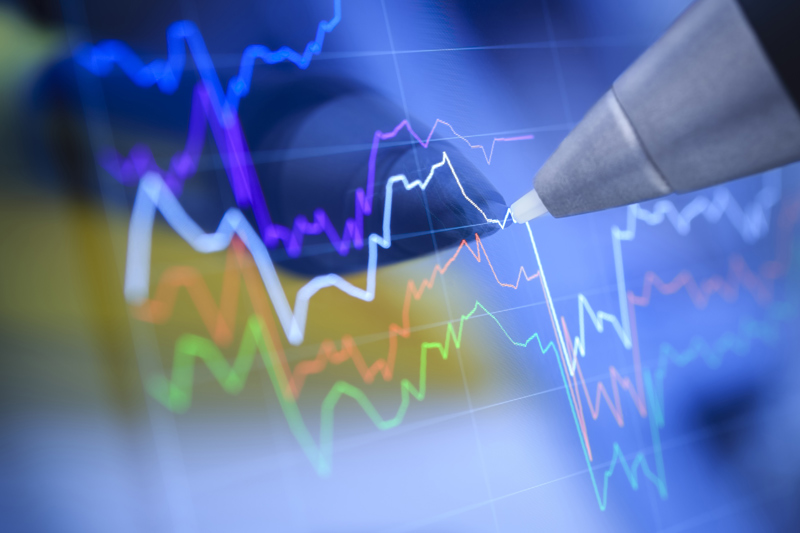Fubotv earnings beat by $0.10, revenue topped estimates
(Corrects paragraph 3 to say an 8% plunge, not 13%, triggered a
trading halt)
* Fear indexes soar, precious metals plummet on Fed moves
* Trading halted for 15 minutes on Wall Street
* U.S., European stocks slump; pare some losses
* Crude oil slides to less than $30 a barrel
* Graphic: World FX rates in 2020 http://tmsnrt.rs/2egbfVh
By Herbert Lash and Marc Jones
NEW YORK/LONDON, March 16 (Reuters) - Markets reeled on
Monday, with stocks on Wall Street and the price of Brent crude
tumbling more than 10%, as the Federal Reserve's second
emergency rate cut in as many weeks to blunt the economic impact
of the coronavirus failed to calm fears of a prolonged
recession.
The magnitude of the Fed's rate move and other measures on
Sunday, backed by global central banks, unnerved investors as
the breakneck spread of the outbreak - all but shutting down
some countries - outweighed the policy response to ensure
liquidity in markets.
The S&P 500 plunged 8% shortly after the open to trigger
another automatic 15-minute halt in trading on the three main
U.S. stock indexes. The halt was the fourth emergency pause on
Wall Street in six days.
Volatility gauges known as fear indexes jumped, with the
Euro STOXX 50 .V2TX in Europe surging almost 28% to an
all-time high and the CBOE Market Volatility index .VIX
soaring more than 30% as equity markets plunged further into
bear territory.
Platinum dived nearly 27% to its weakest level since 2002,
while gold fell more than 5% as investors unloaded precious
metals in exchange for cash as illiquidity haunted the U.S.
Treasury market.
Investors worried that the Fed action, joined by central
banks in Japan, Australia, New Zealand and elsewhere, may not be
enough for companies facing a sharp slide in demand. The moves
were reminiscent of the sweeping steps taken more than a decade
ago to staunch a meltdown of the global financial system.
"The central banks threw the kitchen sink at it yesterday
evening, yet here we are (with deep falls in stock markets),"
said Societe Generale strategist Kit Juckes.
"There is a great sense that central banks are going to get
to grips with the issues of getting money flowing," Juckes said.
"But the human problem, the macro problem, there is nothing they
can do about that."
Rate-sensitive financial stocks .SPSY plunged -9.6%,
leading declines among the major S&P sectors. Energy stocks
.SPNY tracked a 10% slump in oil prices, while technology
stocks .SPLRCT slid -7.2%. Apple Inc AAPL.O , Amazon.com Inc
AMZN.O and Microsoft Corp MSFT.O together lost nearly $300
billion in market value.
MSCI's gauge of stocks across the globe .MIWD00000PUS shed
5.66% and the pan-European STOXX 600 index .STOXX lost 4.82%
as stock markets pared initial deeper losses.
On Wall Street, the Dow Jones Industrial Average .DJI fell
1,643.96 points, or 7.09%, to 21,541.66. The S&P 500 .SPX lost
177.67 points, or 6.55%, to 2,533.35 and the Nasdaq Composite
.IXIC dropped 519.56 points, or 6.6%, to 7,355.32.
Almost nothing was left unscathed. Oil, already slammed by a
price war, slumped to less than $30 a barrel in early trading to
lows last seen in early 2016.
U.S. crude CLcv1 fell 6.18% to $29.77 per barrel and Brent
LCOcv1 was last down 8.2% at $31.07.
There were moves in Europe to curb short-selling of stocks
as bond markets tried to juggle both the risk to vulnerable
countries but also a fiscal spending splurge might impact
safe-haven debt. EUR/GVD
Benchmark 10-year Treasury notes US10YT=RR last rose 42/32
in price to yield 0.8193%.
The Fed's emergency 100 basis-point rate cut on Sunday was
matched by the renewal of its quantitative easing program to
increase cash in markets and more cheap U.S. dollar funding to
ease a ruinous logjam in global lending markets.
There was further policy easing on Monday from the Bank of
Japan in the form of a pledge to ramp up purchases of
exchange-traded funds and other risky assets.
New Zealand's central bank cut rates 75 basis points to
0.25%, while the Reserve Bank of Australia pumped more money
into its financial system. South Korea and Kuwait both lowered
rates, while Russia and Germany were throwing together
multi-billion dollar anti-crisis funds. index of Asia-Pacific shares outside Japan
.MIAPJ0000PUS tumbled 5.2% to lows not seen since early 2017,
while the Nikkei .N225 fell 2.5% as the BoJ's easing steps
failed to reassure markets.
Chinese data underscored just how much economic damage the
disease has already done to the world's second-largest economy,
with official numbers showing the worst drops in activity on
record. Industrial output plunged 13.5% and retail sales 20.5%.
In Asia, Shanghai blue chips .CSI300 fell 4.3% overnight
even as China's central bank surprised with a fresh round of
liquidity injections to the financial system. Hong Kong's Hang
Seng index .HSI tumbled 4%.
Wall Street's worries were raised after New York and Los
Angeles both ordered bars, restaurants, theaters and cinemas to
shut to combat the spread of the coronavirus, mirroring similar
measures in Asia and Europe.
Markets have been severely strained as bankers, companies
and individual investors stampede into cash and safe-haven
assets while selling profitable positions to raise money to
cover losses in savaged equities. The safe-haven Japanese yen jumped as concerns about the
outbreak sent investors fleeing higher-risk assets.
The dollar index =USD rose 0.21%, with the euro EUR= up
0.41% to $1.1151.
The Japanese yen strengthened 2.04% versus the greenback at
105.79 per dollar,
<^^^^^^^^^^^^^^^^^^^^^^^^^^^^^^^^^^^^^^^^^^^^^^^^^^^^^^^^^^^
Asia stock markets https://tmsnrt.rs/2zpUAr4
Asia-Pacific valuations https://tmsnrt.rs/2Dr2BQA
Coronavirus pummels markets https://tmsnrt.rs/2IPoKIb
World stocks plunge on virus worries https://tmsnrt.rs/3aYuAD1
^^^^^^^^^^^^^^^^^^^^^^^^^^^^^^^^^^^^^^^^^^^^^^^^^^^^^^^^^^^>
